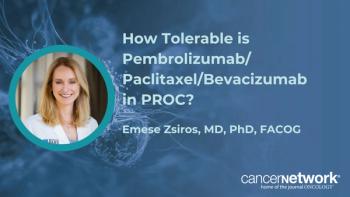
Lisa La on the Limitations of a Study Evaluating Diabetes in Patients with Multiple Myeloma
The clinical investigator and her colleagues sought to evaluate differences in baseline characteristics, treatment patterns, and survival outcomes in diabetic versus nondiabetic patients enrolled in the CONNECT Multiple Myeloma Registry.
Results from a descriptive analysis of the CONNECT Multiple Myeloma Registry presented at the 2020 American Society of Hematology Annual Meeting & Exposition revealed an unmet need to provide improved supportive care for diabetes management in patients with multiple myeloma to further enhance survival outcomes.
The aim of the study was to assess differences in baseline characteristics, treatment patterns, and survival outcomes in diabetic versus nondiabetic patients enrolled in the registry.
In an interview with CancerNetwork®, Lisa La, director of clinical research in the Center for Cancer Care at White Plains Hospital, spoke about the limitations of this study and what she believes the study offers with these in mind.
Transcription:
[As] with any observational prospective studies, this registry wasn’t specifically geared towards looking at patients with diabetes; [rather], it was just an overall prospective study. I just happened to be interested in diabetes [and] I was able to use this data set to analyze that. There was…a good amount of missing information that could have [accounted for] our limitations.
For example…there were very limited data collected for steroid administration. Again, [patients with] myeloma in general [receive] backbone chemotherapy that includes high doses of steroids. Diabetic patients can’t have such high amounts of steroids because it could cause neuropathy and [other] complications. We didn’t really capture that here in the data registry, so I really couldn’t say that there was a big difference.
Also, we know that with registries, it’s not like therapeutic clinical trials where there is constant monitoring of these data to make sure that they’re validated. I think that a lot of these registries could be lacking some tight oversight. But in general, this gives us a very good idea of what we had an inkling on [regarding] outcomes.
Newsletter
Stay up to date on recent advances in the multidisciplinary approach to cancer.










































